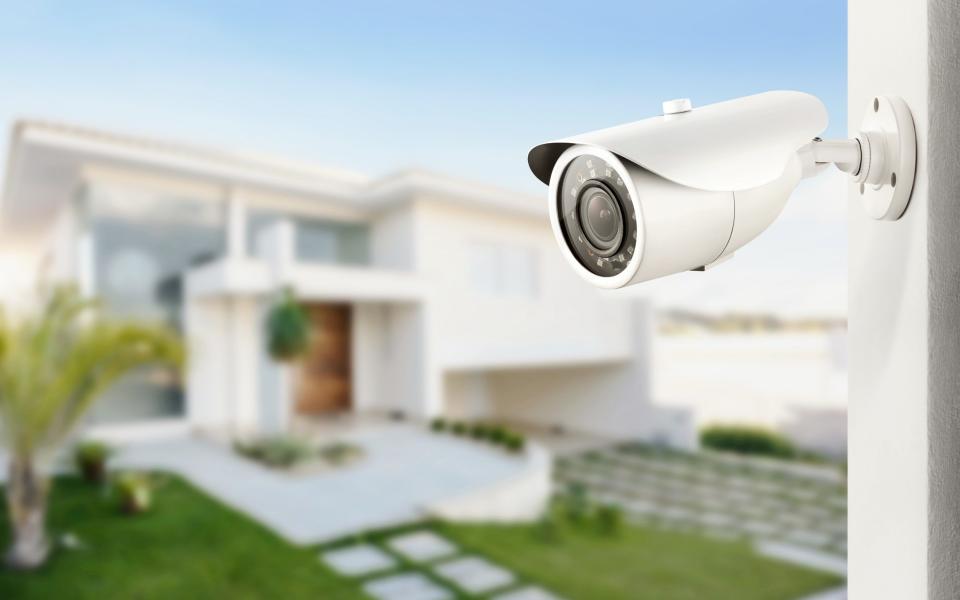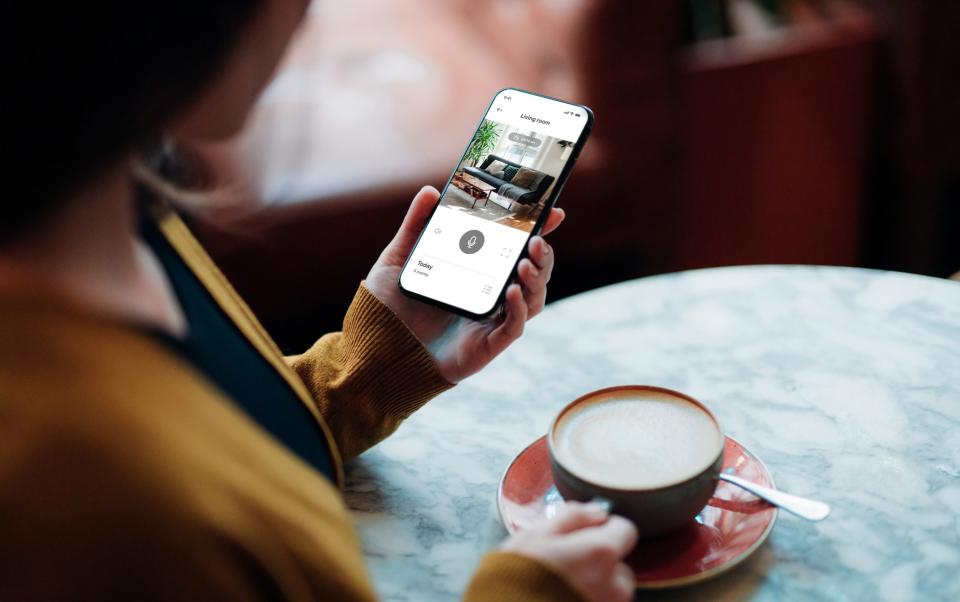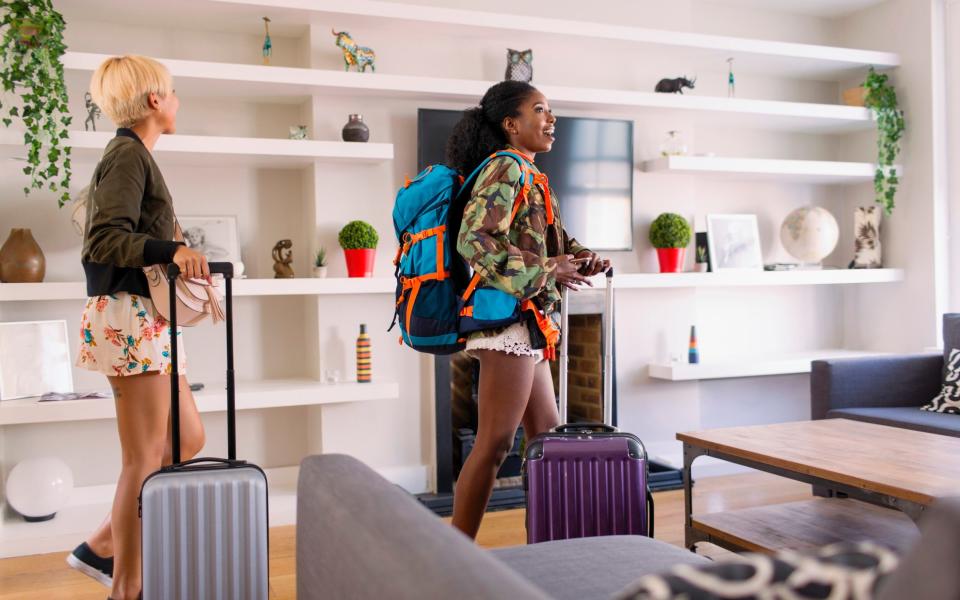Some of us run a finger along a hard surface to look for dust. Some of us jump on the bed, fully clothed. But you might want to do another check when you go into your room on holiday: is there a hidden camera, secretly filming your every move?
Cases of hidden cameras in vacation rentals are rare, but incidents do happen and seem to be increasing. In recent years guests using vacation booking sites such as Airbnb and Vrbo, and even those who have stayed in rooms at well-known hotel chains, have claimed to have discovered hidden cameras pointed at private areas in their rooms.
According to a new study by home security experts Vivint, one in ten vacation rental hosts admitted to having hidden cameras or microphones in their properties. Understandably, 86 percent of the guests surveyed considered such surveillance a violation of their personal space.
So why is this happening, and how can you protect yourself from being caught on camera during your next holiday?
They are smaller than you might think
Hidden camera technology has advanced in recent years. Kody Kinzi, a security researcher at software company Varonis, says hidden cameras are getting smaller every year.
“Hidden cameras are small enough to pack a Wi-Fi access chip inside a postage stamp. While these used to be hidden in things like stuffed animals and USB power blocks, they’re now small enough to be discreetly placed inside many types of objects – some of which I’ve seen include suppressed fire sprinklers , LED light bulbs, and plug-in air. fresheners.”
They are getting cheaper, too. Kinzi says you can pick up a Wi-Fi camera that supports streaming, with features like facial recognition, for as little as US$5.


Telltale signs of a hidden camera in your room
So how do you find a hidden camera? Kinzi says a good first step is to identify private or interesting areas of a room, and check for any suspicious electronic items nearby.
“If objects are squarely centered on doorways, changing areas, showers, or other private or interesting areas of a room, this can be a giveaway, especially if the object is plugged in,” he says.
“Anything like an alarm clock should be included, because there’s no need to change batteries. Be wary of a public area where batteries may be changed frequently without being noticed. Also, other objects such as air fresheners should be examined if they are pointing in an odd direction,” Kinzi said.
How to detect a hidden camera using your phone
You can also try a hidden camera by logging into the Wi-Fi network, he says. “If you’re on the same Wi-Fi network as the camera, like a vacation rental, you can often see the camera by scanning the network. If you are not connected to the network, many IoT to see [Internet of Things] Devices made by manufacturers such as Espressif Systems (maker of the ESP32) are a sign that potentially hidden cameras are attached nearby.”


There are also devices that you can buy
If you want more peace of mind, hidden camera detectors are available for purchase online. Kinzi says: “Using a red LED hidden camera detector to identify glass lenses on objects we identified as suspicious was a lot of work.” On Amazon, hidden camera detector prices range from around £20 to £60.
What to do if you find a camera?
If you find a hidden camera in your rental, Airbnb advises you to contact the police first, and then report it to them afterwards: “If you or someone else feels threatened or unsafe, contact authorities local law enforcement first for assistance. Additionally, if you see or experience behavior that violates our policies, please let us know.” Airbnb has a 24-hour safety line for urgent support.
Vrbo says: “Please contact us immediately if you find a surveillance device that you believe violates our policy. This allows us to take the necessary steps to protect everyone’s privacy and comfort.”
Although you may be tempted to do so, Kinzi stresses that you should not delete the item. “Report it to the police, especially if it is located in a sensitive area. Don’t destroy it – a code can be recovered from the device, which will help identify where it came from. It should be fine to duct tape it and put it in a freezer, as this will drain the battery quickly and possibly prevent a Wi-Fi connection.”
With more people aware of the problem, mistakes can sometimes be made. Kinzi gives a recent example. “A woman identified a suspicious fire sprinkler and many people were torn whether it was a camera or not. It turned out that the sprinkler had a glass element that looked like a lens, [but] I have seen real hidden cameras mounted on fire sprinklers for sale online.


What are the platforms doing to avoid this problem?
Airbnb and Vrbo prohibit hidden cameras in their properties. Airbnb allows hosts to use security cameras in their properties “to help provide peace of mind for hosts and guests”, but they can only be used in certain areas and under certain conditions. They are allowed as long as they are clearly disclosed in the listing description, are not hidden, are only used in a public space (ie not a bathroom) and “do not invade another person’s privacy”. Cameras can be used in common indoor areas, as long as no one is sleeping in that room.
A spokesperson for Vrbo said: “Surveillance devices that capture the interior of a property are never allowed on listings on the Vrbo platform, and we have a strict, long-standing policy against surveillance devices that violate the privacy and security of our guests. Outside your premises, devices such as external security cameras or smart doorbells are only allowed under specific rules, and the host must disclose their presence at all times. Guests should contact our 24/7 customer service team if they find a surveillance device at a property that violates this policy.
“While these incidents are rare, our trust and safety team actively investigates any complaints about bad actors and takes action accordingly, including permanently removing any hosts in violation of our policies.”